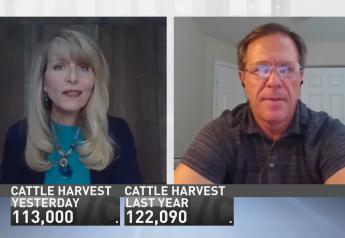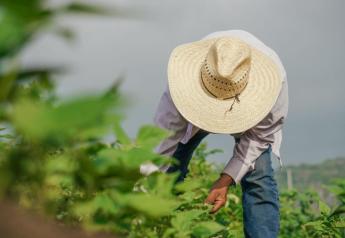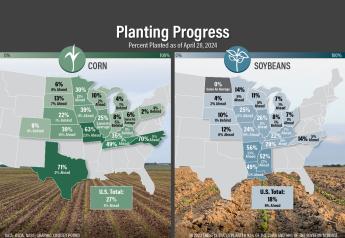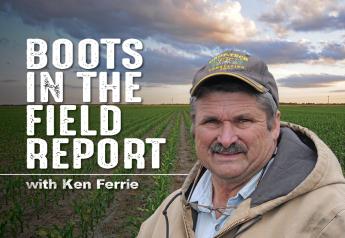Next-Gen Spotlight: Technology and Side Hustle Help Missouri Couple Come Back to the Farm

Marc and Meagan Kaiser are building their agricultural future in Missouri. Marc is a 5th generation corn and soybean farmer from Carrollton, and Meagan’s family owns a soil testing business in Bowling Green. Together, the couple is finding a way to be part of both family businesses while keeping an eye on their two young children, Mak and Nora. From being active in organizations such as the United Soybean Board to starting their own precision ag business now serving 15 states and three countries, the pair are laser focused on growing the future of the industry.
Q: You both had other careers. How did you know you wanted to come back and farm?
Marc: I went to school thinking I wasn’t going to be back on my family’s farm. We got married in 2012, started our precision ag business and that became the conduit that allowed me to go back to the farm. This was important to me because I didn’t want to be a burden on the farm financially.
Meagan: I was committed with him to joining the farm because it was, in large part, my idea — which is probably how it had to be given the level of commitment. We looked at each other and said, you know, it would be a shame to let this out of the family when we don’t have to.
We live in two different homes in two different towns, and door to door they’re 2.5 hours apart. It was admittedly easier at the beginning when it was just the two of us. Then all of a sudden, a baby is going back and forth. It’s not easy, but we also know we’re not alone. There are so many farmers who farm hundreds of miles apart and their families figure it out.
Q: Has anything surprised you, good or bad, coming back to the farm?
Marc: We wouldn’t be able to do this without the technology that has developed in the past 10 years. When it comes to being able to check irrigation, check grain bin moisture or even check ground moisture under our pivots, there’s so much I can see on my iPad or phone. It’s the same thing when it comes to our other businesses. We are able to check things from afar. Meagan can also look at soil lab equipment while she’s on the farm and watch how the machines are running. That has made the distance an option, and it also allows us to spend more time at each place versus having to run back and forth and commute constantly.
Meagan: The biggest surprise to me, and I hear this a lot when it comes to obstacles of generational farming, was that our parents let us make decisions and sometimes they let us fail. I think they knew what was going to happen before we did, but they let us do it anyway. For the farmers reading this, if your next generation is joining you, remember to let them have some autonomy. Sometimes you might be surprised and they might be right. We’ve been right on technologies and other things, but really, we’ve been blessed with parents who have thought our opinion mattered and incorporated it. That has given us ownership and more pride in the operation too.
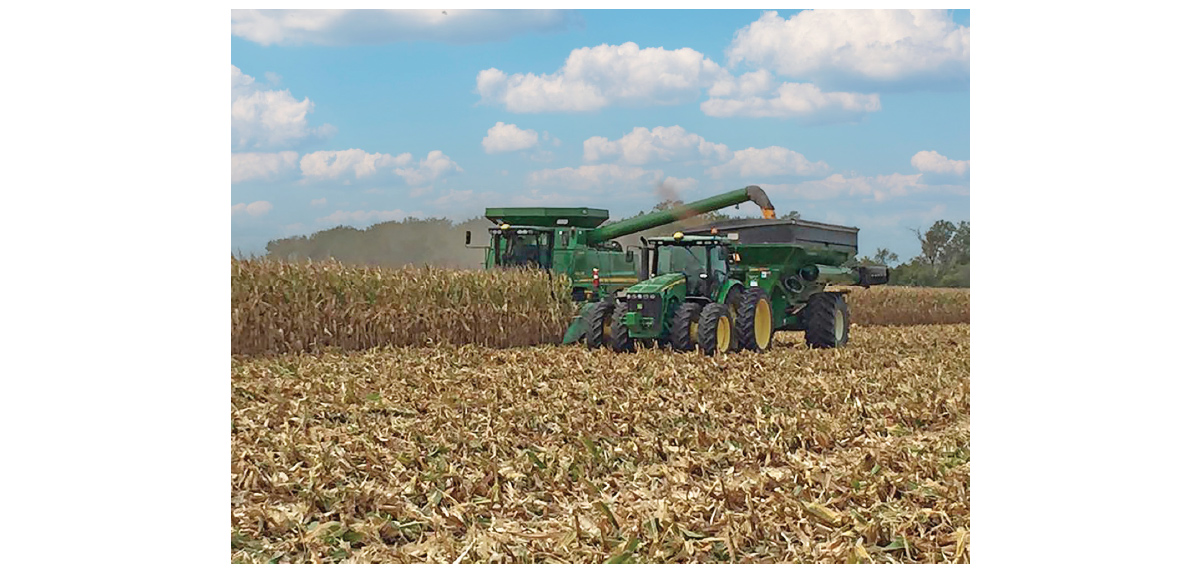
Q: What advice would you give next-gen producers?
Meagan: Be observant and be curious. There are a lot of people willing to sell you things, but you have to be a scientist and test things because your profitability relies on it. The most successful farmers we work with are super focused on infield observations. They’re monitoring what they put on, measuring what they take off and running it against their return on investment. It’s hard. It can be a little overwhelming when you go to Commodity Classic and walk the trade show floor. You could obviously grow 200-bu. soybeans if you bought everything on the floor. I admire farmers because they have to try to pinpoint which decision is the right one that will add an extra 5 bu. It’s not easy.
Marc: It’s important to understand where your parents came from, what they’ve done, the decisions they made and what they learned. You can learn two different ways: either by somebody else’s mistakes or by your own mistakes. It’s a lot easier to learn from the previous generation’s mistakes. Everybody says they don’t want to farm like their parents did. I do. I want to farm like they did but with the adjustments they’ve learned to make. Take that knowledge they’ve gained for the past 40, 50 or 60 years. Don't just throw it to the side. Use that knowledge to then make your decisions going forward.
Q: Why should a next-gen farmer consider getting involved in one of the national farm groups?
Meagan: The most important reason is that it makes us think beyond our own farm gate. I’ve had international conversations about sustainability and about our farm practices with a fish farmer in Cambodia. It made me think about everything we do on our farm, every aspect we can measure and every portion we can prove. I realize I wasn’t considering the need to prove it to anybody before.
If you don’t have the commodity organizations, for instance, doing the research to prove our sustainability gains, then nobody knows about it. We have to prove it. That means showing up and taking part is half of the battle. It’s hard. I have two young children, but I still think it’s important for every farm family to think about how can we engage — not from a glory standpoint, but just to make sure somebody is showing up to tell this story and proving our sustainability.
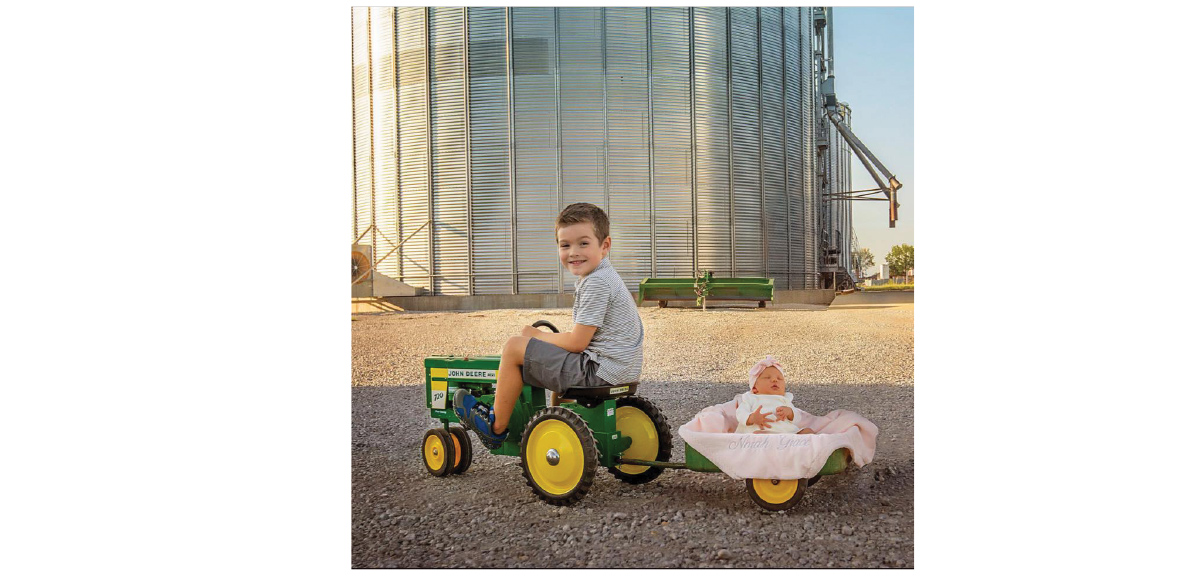
Q: Is having a side hustle a good idea?
Meagan: For us, admittedly, there’s probably a little pride in having an off-farm job. We both didn’t want to be a drain on the operation. We had successful careers before we came back to our family businesses, and we wanted to say we’re contributing — not just taking. I think it gives you a little bit of independence and that might be why it’s a good idea. That said, we’ve had a lot of all-nighters getting our side hustle going. Be prepared to work because you don’t get to take off time from the farm or that other business.
Marc: Our side hustle and farming are mutually beneficial. Some of the resources we use in our precision ag business translate directly to the farm.
Meagan: I joke that I turned the farm into a giant research trial and Marc is always willing to try something new.
Q: Your career, either on or off the farm, has revolved around agriculture. Why?
Marc: In a way, we’re helping feed not only people in America, but people around the world. We get to be involved with family businesses. It isn’t always perfect, but there are always lots of laughs. Ultimately, it’s rewarding taking on and being part of this responsibility.
Meagan: We get to live our daily lives a little bit more tactically focused, but we keep the big picture in mind. We get to raise our kids in agriculture and, in the end, we get to be around our kids and our parents a lot more because of this life. All of those things are things we really value. I do think our kids get tired of hearing about boron trials at the dinner table, but we're having a good time.
Want to read more inspiring stories about farming's next generation?
Next-Gen Spotlight: Technology Is This Illinois Farmer's Forte
Next-Gen Spotlight: Illinois Siblings Capitalize On Their Location to Expand Their Farm Revenue
Next-Gen Spotlight: Lindsay Baneck Is In the Business of Selling Memories



